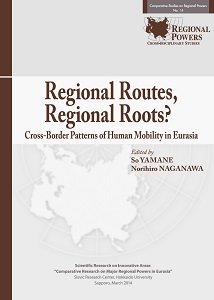The Ends of Empire. Imperial Collapse and the Trajectory of Kurdish Nationalism
The Ends of Empire. Imperial Collapse and the Trajectory of Kurdish Nationalism
Author(s): Michael A. Reynolds
Subject(s): Recent History (1900 till today), The Ottoman Empire
Published by: Hokkaido Slavic-Eurasian Reserarch Center
Keywords: History of th Kurds;
Summary/Abstract: The Kurds are a people who speak a Persianate language or cluster of dialects and who comprise the dominant population in the territories where contemporary Turkey, Syria, Iraq, and Iran meet. The name “Kurdistan” loosely denotes these lands where the Kurds live, although because an expressly Kurdish state has ever existed, the boundaries of Kurdistan have never been defined with any precision. Scholars typically describe the Kurdish language as encompassing two major dialects, Kurmanji and Sorani, but disagreements exist about the proper classification of Kurdish dialects and sub-dialects and about the relationship of other Persianate tongues to Kurdish. Kurds today likely number somewhere around twenty-five million people and are often identified as the world’s largest ethnic group without a state. Thus their modern history is generally narrated as one of victimhood and denial of statehood. This paper represents an attempt to make the seemingly counter-intuitive argument that the collapse of imperial rule in the early twentieth century was, for the purposes of Kurdish national aspirations, premature and therefore ruinous in its consequences.
Book: Regional Routes, Regional Roots? Cross-Border. Patterns of Human Mobility in Eurasia
- Page Range: 31-48
- Page Count: 18
- Publication Year: 2017
- Language: English
- Content File-PDF

